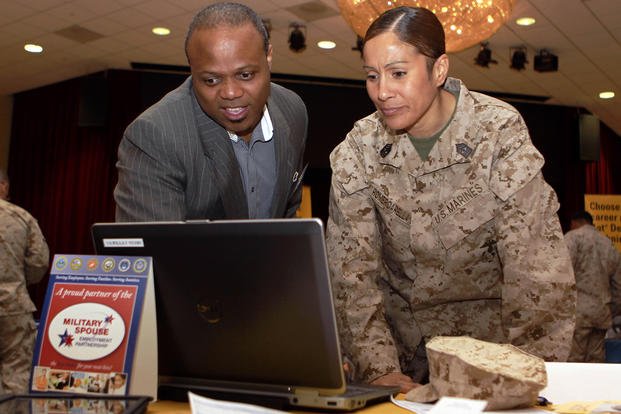More than 200,000 service members transition to civilian life each year, and chances are you will interview and possibly hire a military veteran. Hopefully, your company has (or is starting to build) a veteran hiring program to attract, on board and retain veteran talent. Regardless of where you are in the process of engaging with veteran talent, there are a few things to know when interviewing a former military service man or woman.
Related content:
How to Get Tax Credits for Hiring Veterans
Take the Veteran Hiring Pledge
1. Fear
The transition to a civilian career is unfamiliar to veterans. When interviewing a former service member, consider that they might be reluctant, intimidated, and even fearful of the process. While they are highly trained and adaptable to succeed in many scenarios, interviewing for a private sector career is something they embark on with very little training.
Keep in mind that when someone feels fear, they react differently: They might appear overly rigid or succinct in their communication. They might avoid eye contact, or sit with crossed arms in an interview. These are possible signs that your candidate is uncomfortable with the experience, not insecure in their value or potential contribution to your company.
2. Want to be liked
Maslow taught us that in the hierarchy of needs being accepted and liked is an important part of the human interaction. Military veterans are no exception. They are taught to be selfless and focus on mission and service, but they are also human beings with a natural desire to be accepted by those around them.
3. Still want to serve
The call to serve does not leave our veterans when they take off the uniform. For many veterans, they seek a career that empowers them to mentor others, be a role model, or contribute to a greater mission by serving in their community.
Employers who are passionate about community engagement, corporate social responsibility, mentoring, or other acts of service should talk about this in the job interview. Showcase examples of employees working collaboratively and in service to others or an external audience.
4. Want to make a difference
Along with a desire to continue to serve, many of the veterans I have worked with talk about wanting a career that has impact. They seek to fulfill a mission that has meaning and significance. For this reason, veterans are often drawn to non-profit work, and organizations that serve military veterans. Having impact to others is a significant part of the military culture, and is a tremendous value-add to companies that believe in leading from a vision.
5. Default behavior
Human beings display default behavior in their interactions with each other. Veterans are no different. For former service members, however, misperceptions often swirl around the default behaviors that are unfamiliar in the civilian sector: For instance, a veteran may (by default) answer questions succinctly and candidly, they might sit rigid in their chair, and will often still use Sir and Ma’am in addressing the interviewer.
This behavior is hard to break. For someone who recently separated from the military, perhaps they haven’t been coached to “civilianize” their language and behavior. Showing empathy towards this default behavior can instill trust with veteran job candidates. Offer a simple, “Please, call me Susan,” in response to “Ma’am” as a gentle way to coach a candidate through the process.
The process of transitioning to a civilian career is seamless for some military veterans. For most, however, the interviewing process is filled with uncertainty and confusion. Empower your hiring managers and interviewers to watch for, and respond empathetically, to behaviors which can support your company values, and put the veteran job candidate at ease.





